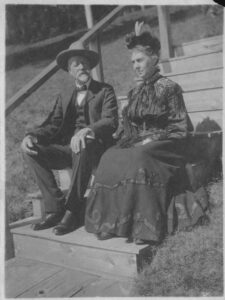The timeless genius of ‘The Twilight Zone’
“The Twilight Zone,” a TV show airing from 1959-1964, is regarded by many to be one of, if not the most, thought-provoking and influential shows of all time.
Its legacy and the legacy of its creator, writer and narrator Rod Serling, are massive. Although the show has already been discussed extensively, the timelessness of many of the themes that particular episodes represent cannot be overstated.
These episodes, I feel, have also impacted my own personal outlook on their topics, despite being a modern viewer who has been exposed to many different viewpoints on many different subjects. Although not every episode is as thematically deep or well-crafted as the following ones, each has their own appeal and should be taken into consideration.
Please note that these analyses contain spoilers for certain episodes of The Twilight Zone.
“Walking Distance”: This is only the fifth episode of the show, and lays broader, but still important, groundwork for more specific episodes later on. This is the idea of “person reminiscing about happier times.” Only, since this is “The Twilight Zone,” that can never be all it is.
While getting his car repaired, Martin, a middle-aged man unfulfilled in his stressful life, finds that his hometown is within walking distance. He travels there only to find that the town is as it was around 30 years ago. He finds his younger self as a boy and attempts to give him a sense of agency and help him to “live-in-the-now.” Despite the adult Martin previously being rejected by his parents, his father later realizes the truth of his identity and finds him. He reassures him that while childhood was a wonderful time, the past and the future, as an adult, can be just as, if not more, wonderful. I find, though a younger person, I can still aspire to relate to this. I hope the struggles of life do not bring the sense of unfulfillment that Martin has, and if they do, I can only hope I, and anyone, can have a powerful realization such as Martin’s.
“The Monsters are Due on Maple Street”: This is one of the most famous and best episodes in the series. The plot is deceptively simple: A group of townsfolk see what could be aliens arriving, and as inexplicable events happen, they violently turn on one another, believing their long-time friends and neighbors to be aliens. Although it is likely to be an allegory for Cold War paranoia at the time, it can be seen as so much more.
It represents any negative thought or action toward anyone or anything, for any reason, due to bias. A world where these thoughts and actions do not exist may be too idealistic. However, we all can strive to get as close to this ideal as possible and to eradicate misplaced distrust and hate when it tries to consume us.
“Eye of the Beholder”: My personal favorite episode also contains themes similar to “Monsters,” above, in a more relatable way. A woman with her face bandaged is required by a futuristic law to undergo surgery to fix her face, deemed too hideous to co-exist with those who are “normal.” The doctors and nurses, after the surgery fails, are revealed to actually be what we, today, would call hideous, and the woman what we would call beautiful. In distress, she runs out of the operating room where the world leader rants about the necessity of complete conformity on television. Afterwards, she accepts her fate to go live with those, “like her.”
The themes and implications are more obvious here but nonetheless important. To one degree or another, everyone feels they have to conform. However, viewing this episode flips the idea of conforming on its head, and makes you think, “What norms could we see ourselves conforming to in the future just as easily as we conform to modern norms?”
“The Changing of the Guard”: An elderly school teacher becomes suicidally depressed after being let go of his position for being too old-fashioned, and believes his life to have been meaningless. He sits under a statue of Horace Mann engraved with the quote, “Be ashamed to die until you have won some victory for humanity.” However, the ghosts of his previous students who all have died in heroic ways that lived by his teachings visit him, and reassure him that he has “won his victory.”
This existential conclusion is one I hope I, and anyone, can reach when my/their life is nearly over. Even the smallest reassurance that life had some meaning would be enough.
“The Twilight Zone” and the pursuit of spreading its genius to others remains one of my largest passions. I believe it is one of the few pieces of entertainment media that has transcended that label to truly become something more: a guide for those in today’s world who are looking for self-reflection, clarity, meaning, and purpose.
——
Isaiah Virkler is a senior at Beaver River Central School and has been published in Wild Words, the anthology of Adirondack teen writers, published by the Adirondack Center for Writing. He is the co-founder of Wordsmiths, his school’s creative writing club. Isaiah enjoys writing short stories in various genres and is currently working on his first novel.



